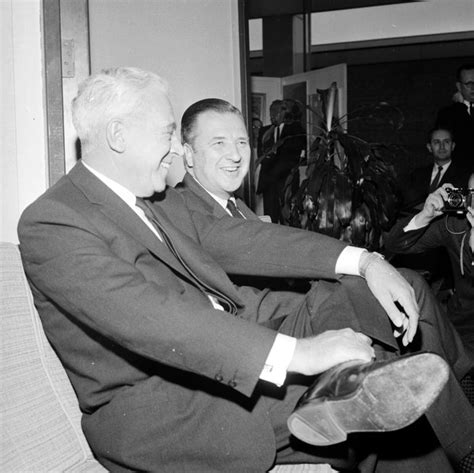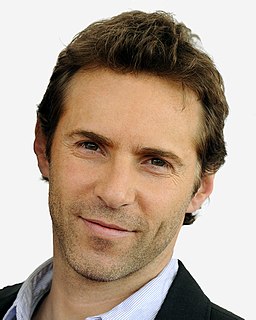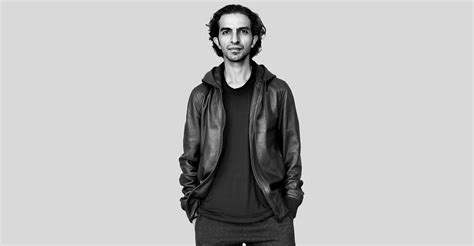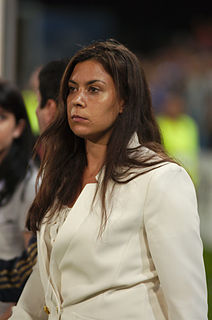A Quote by Russell Simmons
I don't use my brain about the creative thing. From a business standpoint, I instinctively do things: when I get something right, it's never because I use my brain.
Related Quotes
I wanted to say something to cheer her up. I had a feeling that cheering her up might be a lot of work. I was thinking of how sometimes, trying to say the right thing to people, it’s like some kind of brain surgery, and you have to tweak exactly the right part of the lobe. Except with talking, it’s more like brain surgery with old, rusted skewers and things, maybe like those things you use to eat lobster, but brown. And you have to get exactly the right place, and you’re touching around in the brain but the patient, she keeps jumping and saying, “Ow.
A new study finds that women use their whole brain when listening and men only use half of their brain. You see, men use the other half of their brain to come up with excuses. I don't think women use their whole brain when listening. I think they use half of it and the other half is used to memorize what men are saying so they can use it against them 10 years later!
Everyone uses the brain at every moment, but we use it unconsciously. We let it run in the background without realizing the power we have to reshape the brain. When you begin to exercise your power, the everyday brain, which we call the baseline brain, starts to move in the direction of super brain.
With the advent of digital imaging I made the transition from trying to figure out how to do things to creating objects, characters and the whole cloth. It kind of freed up the analytical part of my brain and I had the opportunity to use more of the creative side of my brain for how things interact with light and integrate into stories.
Just getting to the point where we are now with 'To Dust' movie - where we've raised the money, put the crew together, signed all the actors up and are going on a certain date - is one of the biggest achievements of my life. It's nice, and producing definitely helps me to use the other side of my brain. I get brain fatigue from all of the creative drive.
Each of us plays four roles in relation to the brain. We lead, we inspire, we invent, and we use it. Most people do not actively use their brains. They passively let their feelings and thoughts control their lives. They don't invent new ways to use their brains, either, settling instead for the same routine and repetitive thoughts every day. But if you master all four roles, you create your super brain. When you are the active observer of your feelings and thoughts, you become the user of your brain. Your super brain then serves you, not vice versa.
It's gross. We use real brains - I think they're lamb or cow or something. Intestines smell. Brains don't really smell, but what's amazing about the brain is that it's almost like scrambled eggs or soft tofu, almost like a gel. The brain controls so much of what we do, but you could put your finger right through it.
I want my music to be something that people use in order to access parts of themselves. So in that sense, every piece I write is about all emotions at once, about the lines in between. It's never only about one thing or another. It's emotionally getting at those things that we can't really describe - things for which we don't have labels. So yes, it's about something, and it has a use. It's neither about nothing nor about something concrete - it's about what you bring to it as a listener.
Because we do not understand the brain very well we are constantly tempted to use the latest technology as a model for trying to understand it. In my childhood we were always assured that the brain was a telephone switchboard...Sherrington, the great British neuroscientist, thought the brain worked like a telegraph system. Freud often compared the brain to hydraulic and electromagnetic systems. Leibniz compared it to a mill...At present, obviously, the metaphor is the digital computer.


































